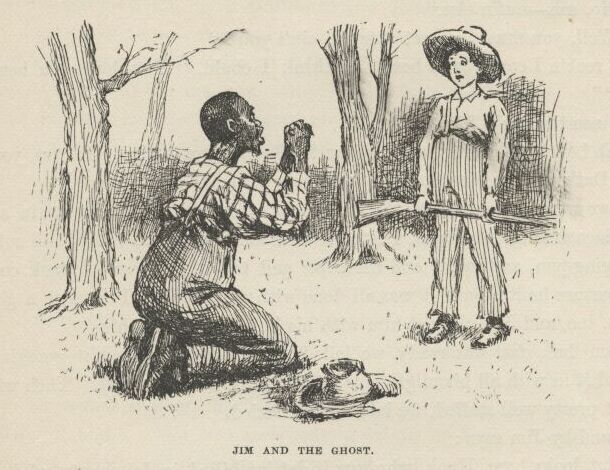
I’m always surprised when the debate over the Adventures of Huckleberry Finn returns. I’m not sure why that is. I shouldn’t be. According to the ALA it is among the top five most challenged books in the United States. The controversy, as we all should know, stems largely from the representations of Jim and the vocabulary attached to him. But don’t worry, someone has come up with a way to solve the problem.
From the New York Times:
Throughout the book — 219 times in all — the word “nigger” is replaced by “slave,” a substitution that was made by NewSouth Books, a publisher based in Alabama, which plans to release the edition in February.
Alan Gribben, a professor of English at Auburn University at Montgomery, approached the publisher with the idea in July. Mr. Gribben said Tuesday that he had been teaching Mark Twainfor decades and always hesitated before reading aloud the common racial epithet, which is used liberally in the book, a reflection of social attitudes in the mid-19th century…
“I’m by no means sanitizing Mark Twain,” Mr. Gribben said. “The sharp social critiques are in there. The humor is intact. I just had the idea to get us away from obsessing about this one word, and just let the stories stand alone.” (The book also substitutes “Indian” for “injun.”) [full article here]
Except that of course he is sanitizing it. Gibben’s scheme to end the book’s contentiousness is an end run around the book itself, a way to make it easier to swallow Twain’s social criticisms. A nice spoonful of sugar.
But, carbo-loading your literature isn’t the best idea.
The NY Times, ever helpful, posted some debate points on the topic. My favourite being from Francine Prose’s contribution:
Knowing the history of censorship in our libraries, knowing how often Huck Finn has been removed from a school’s curriculum because of the word “nigger,” I’m almost inclined to say that if it takes censorship to insure that the book is still widely read, it might not be the worst thing. Let students experience Huck’s consciousness and discover the cruel realities that his culture took for granted. After that they may be inspired to read what Mark Twain actually wrote.[full article here]
I don’t agree. How do libraries and schools gain a victory over censors and book-challengers by giving into them. Truthfully, I really think there is more to lose than gain.
Thomas Glave’s contribution rings powerfully true:
Great literature that reveals truths about a society can enable such learning and thinking: the fact is that Huck simply would not have referred to Jim as a “slave.”…
An insistence on obfuscating the past and obscuring the truth of real events is itself violent; such obfuscation does violence not only to the memories of those who suffered, but to our own potential as human beings to remember, and who must be charged, toward our own greater humanity, never to forget.
Damn straight.
The quarrel and debate that Twain, dead for a hundred years, can still stir up is important and speaks to the power of classic works of literature. But, Gibben seems uninterested in preserving Twain’s work for future readers.
It seems he’d rather see a book that, through removing a few idioms, has essentially been yanked out of the complex, deeply felt debate over the legacy of slavery in the United States. If anything, the NY Times’ debate shows how current and necessary it is to talk openly about Twain, Huck Finn and N-word Jim.
Besides, search and replace isn’t the most interesting route. There are other more novel rewrites of Huck Finn out there.
No comments